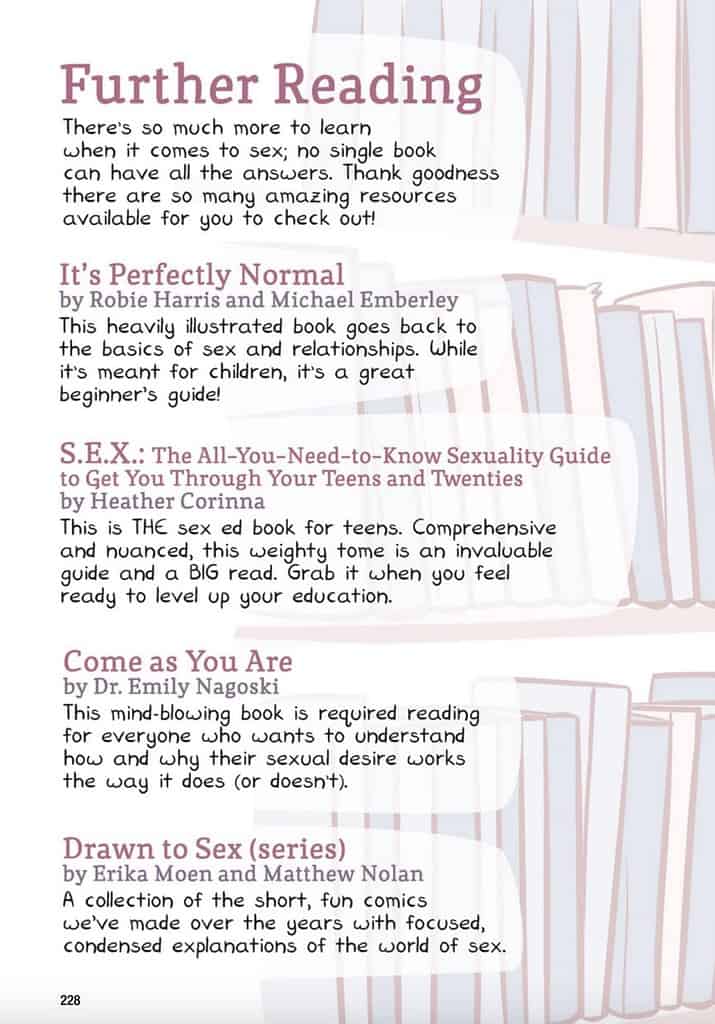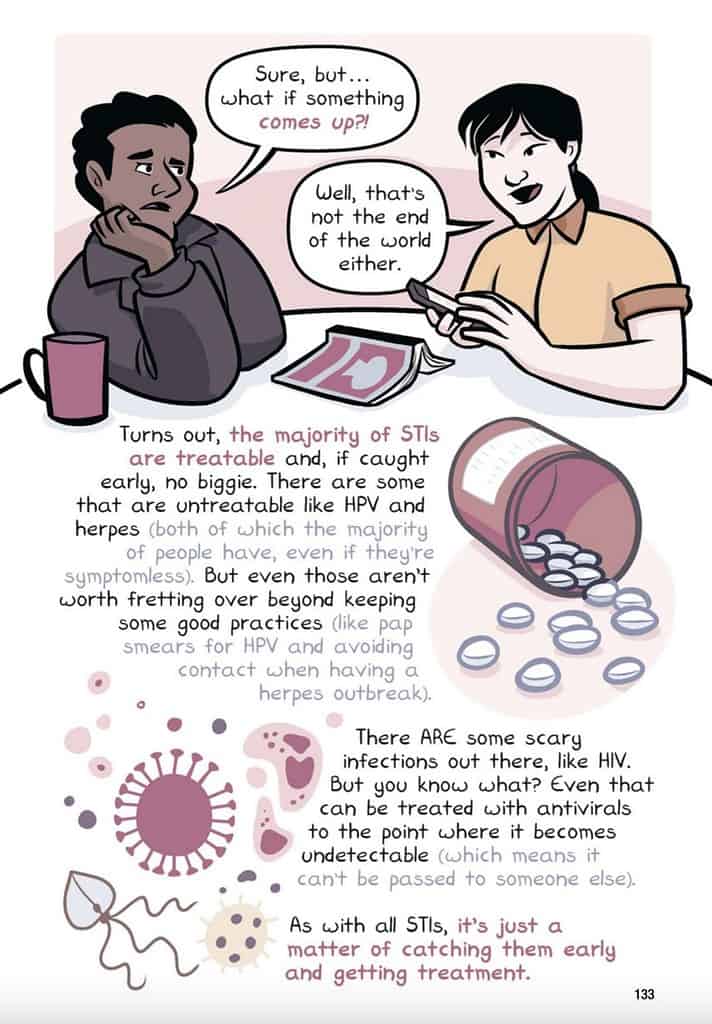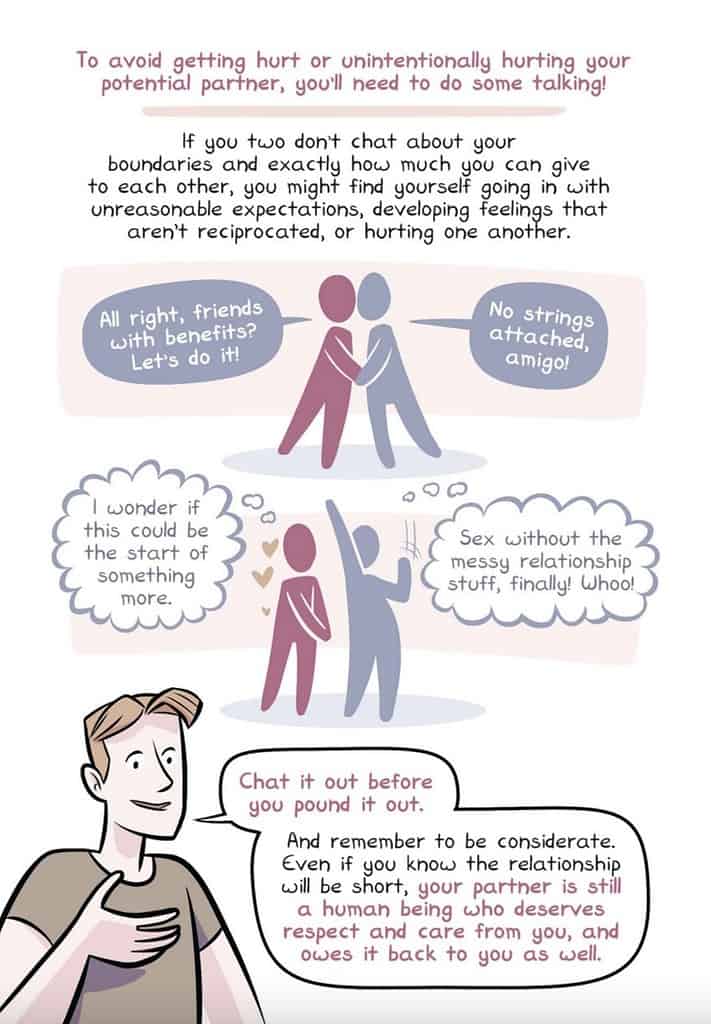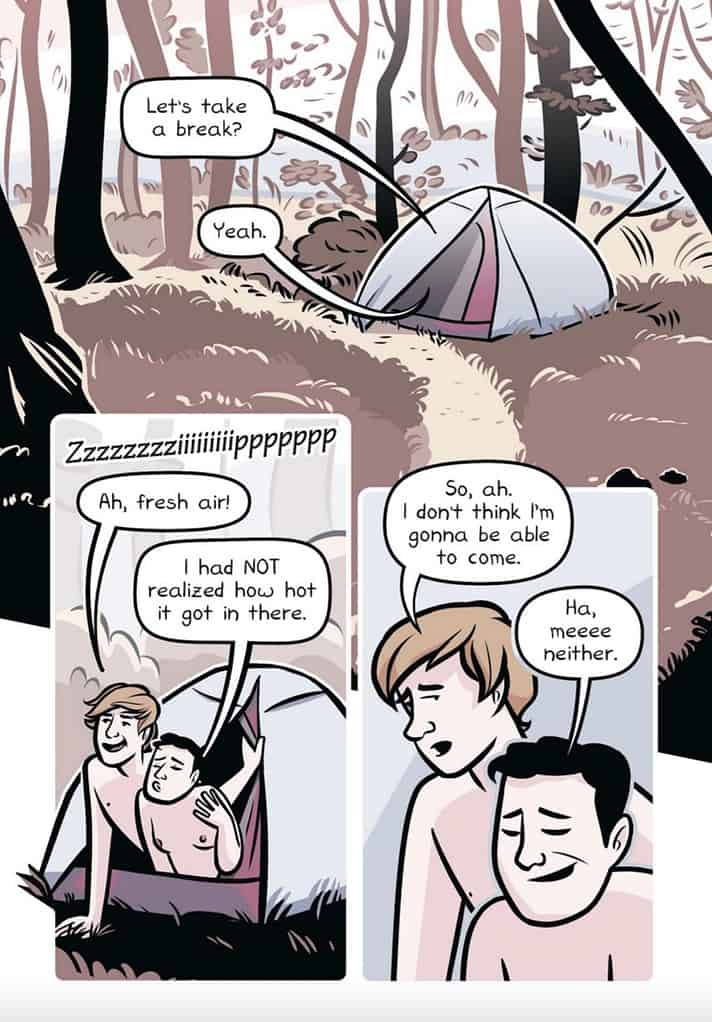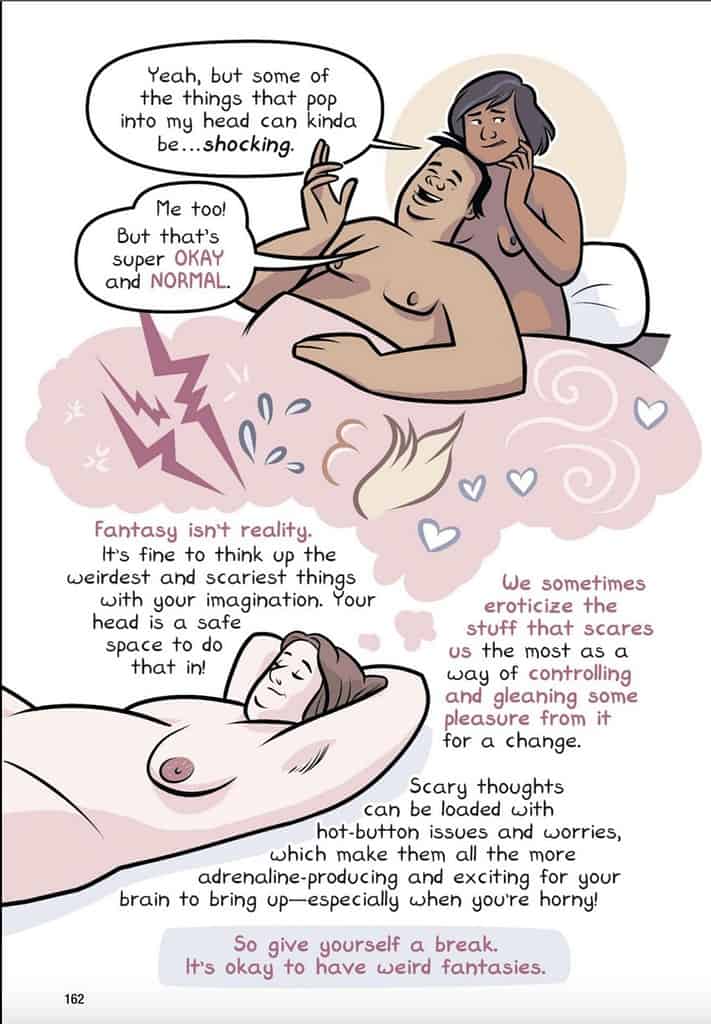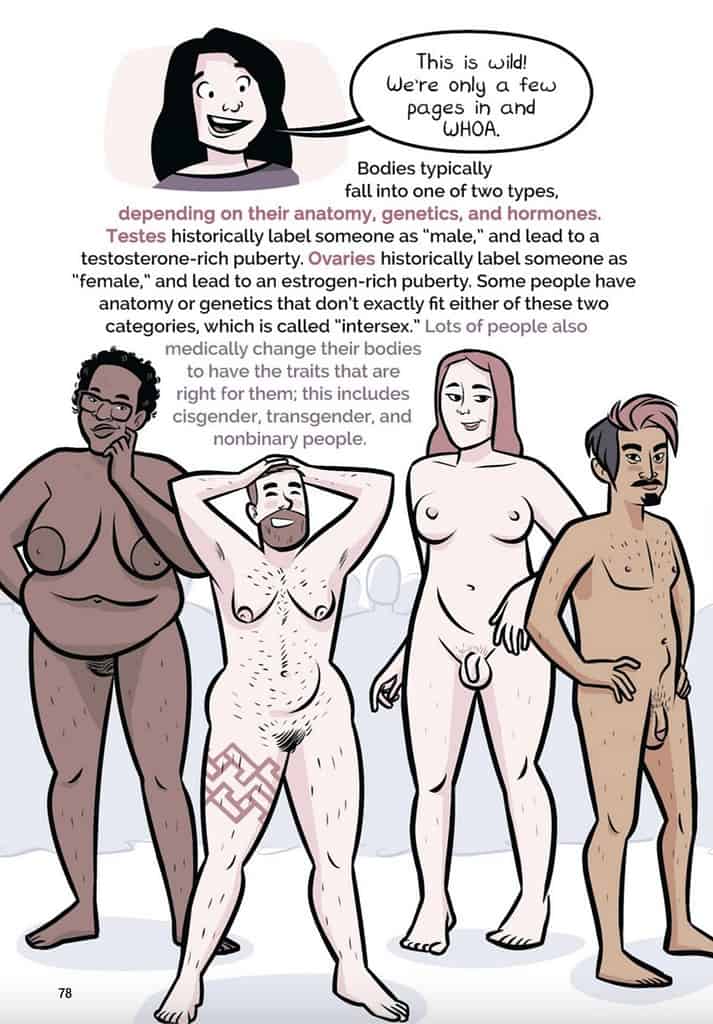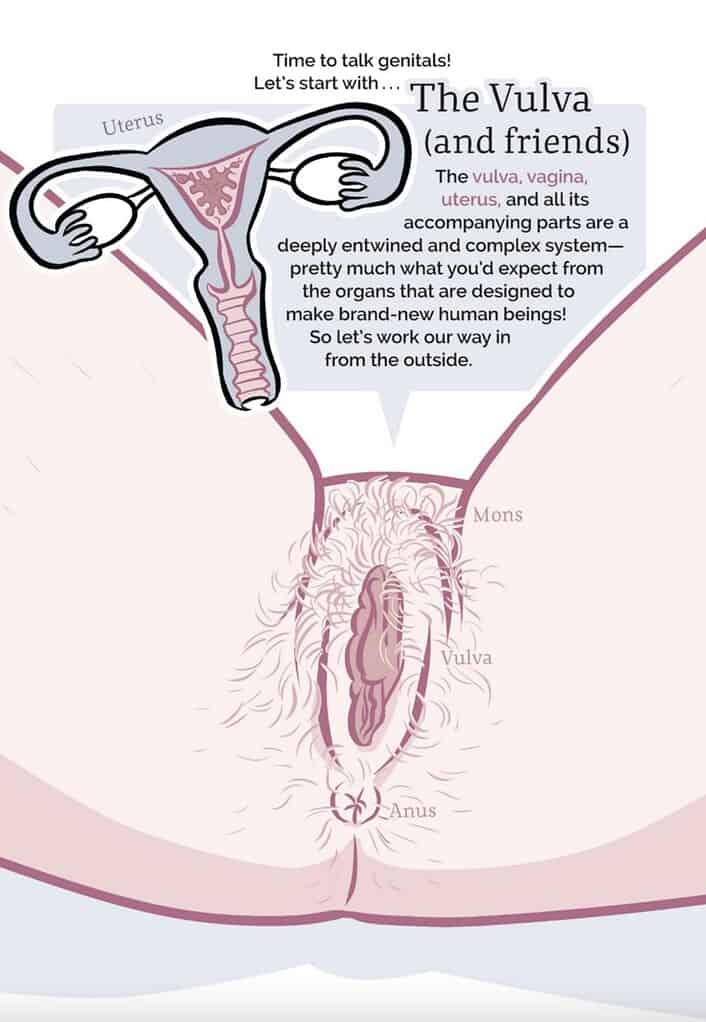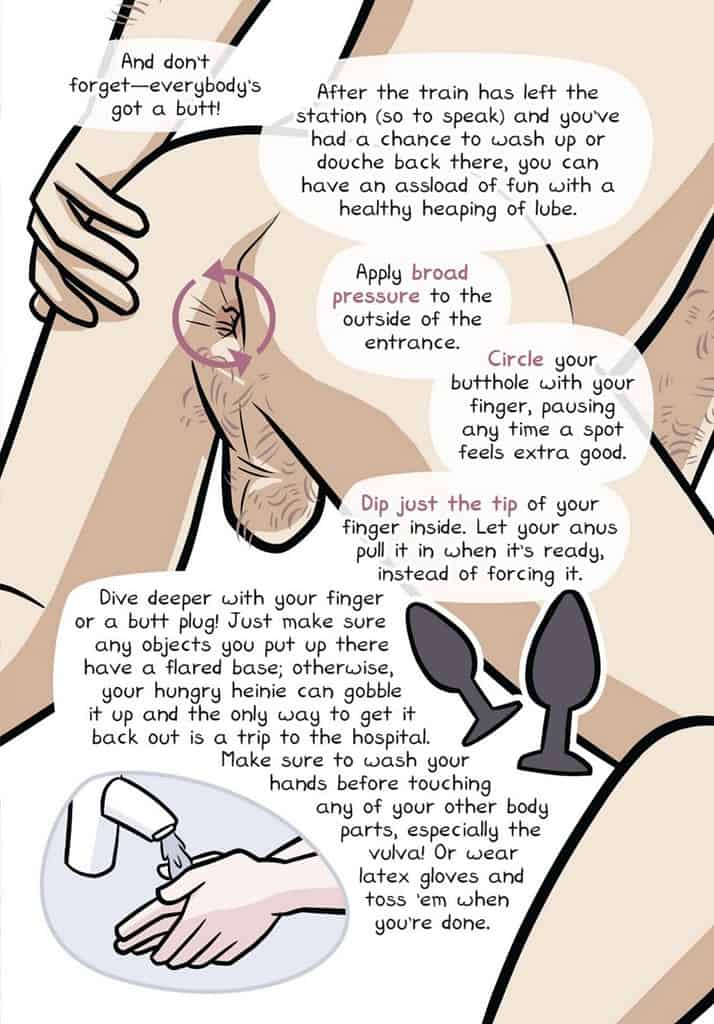
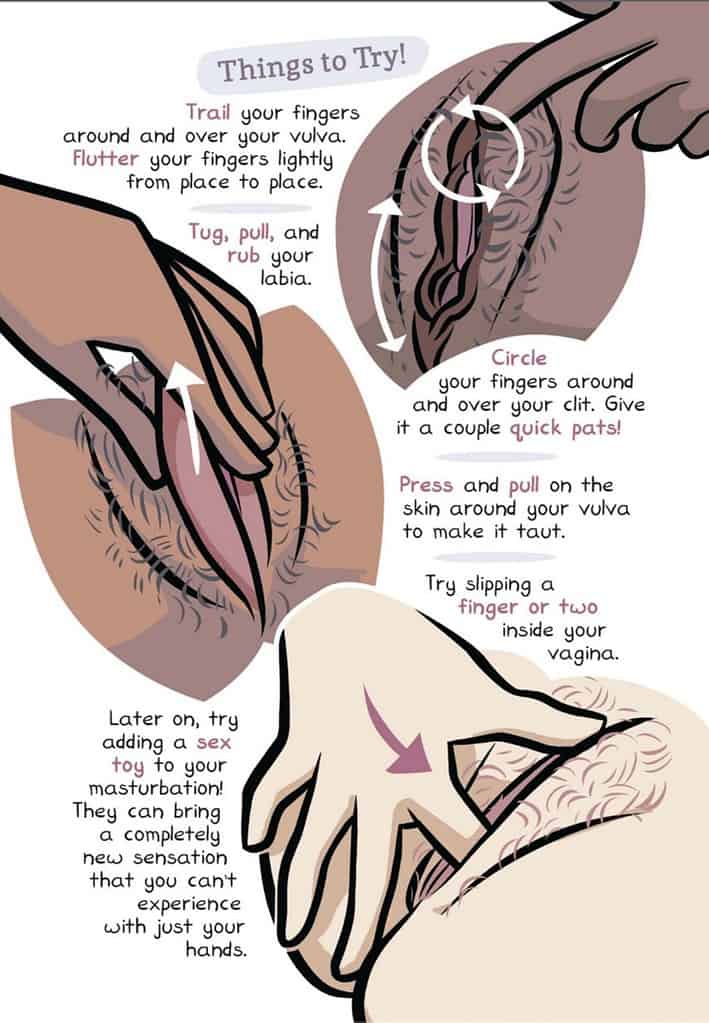
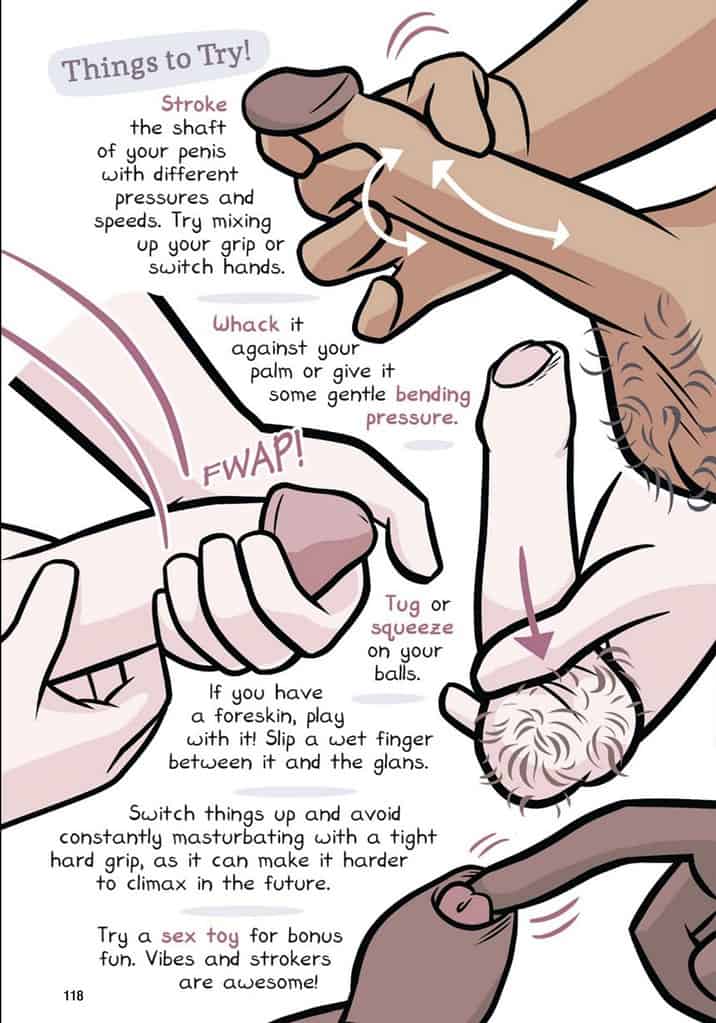



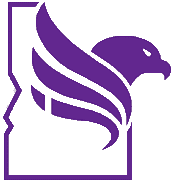
Editor's note: Many of the images from the books described in this post are graphic. Click on each image to unblur.
By Anna K. Miller, Sam Dorman, and Scott Yenor
Idaho’s public school libraries are stacked with books that encourage minors to embrace left-wing and permissive ideas about sex, public records requests have revealed.
A good place to start is West Ada school district, which has been circulating more than 50 books with sexually explicit or “LGBTQ+” content. Today, we focus on two titles – “Let's Talk About It: The Teen's Guide to Sex, Relationships, and Being a Human” and “Trans+: love, sex, romance, and being you" – which have been circulating in the district.
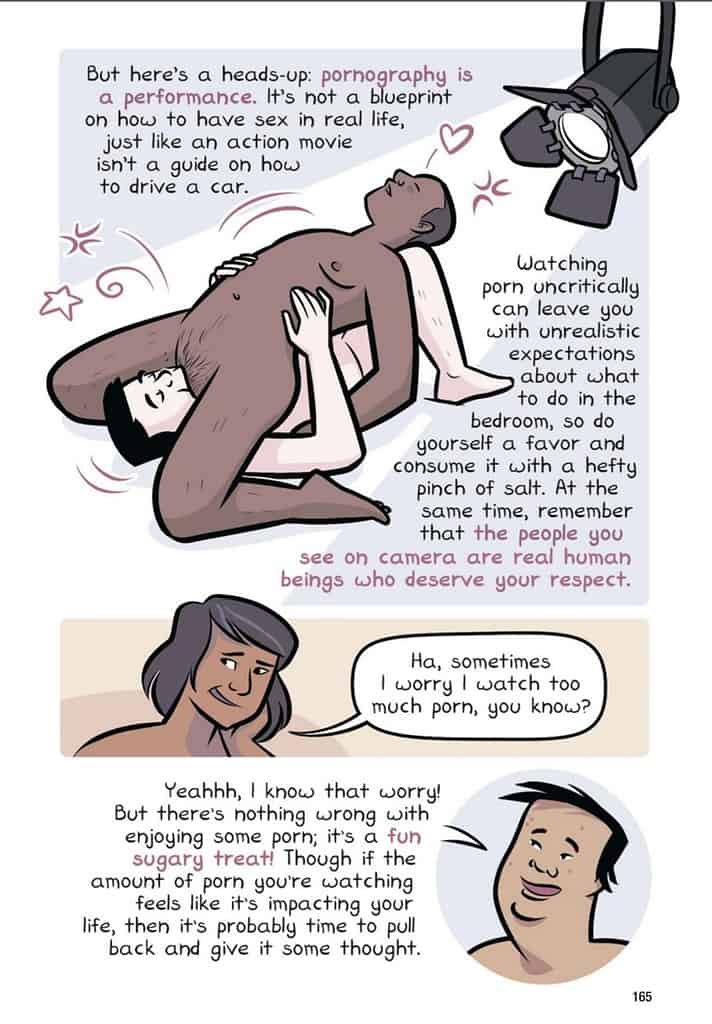
Written by the married couple behind the web comic “Oh Joy Sex Toy,” “Let’s Talk About It” includes chapters with instructions on how to masturbate and consume pornography. It encourages students to become porn stars or sex workers through a cartoon illustration of someone performing oral sex on another with a studio light close by. The authors admonish readers who might watch pornography “uncritically” or fail to treat the performers with respect.
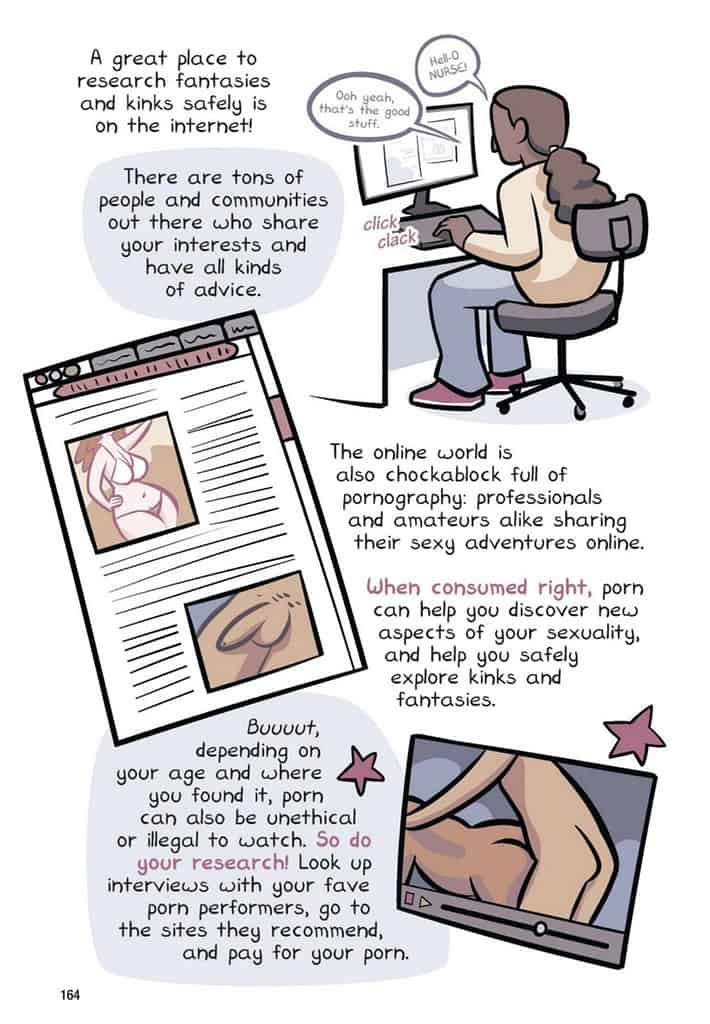
It encourages readers to look up interviews with their favorite porn stars and to watch pornography. “The online world is chockablock full of pornography: professionals and amateurs alike sharing their sexy adventures online. When consumed right, porn can help you discover new aspects of your sexuality, and help you safely explore kinks and fantasies. Buuuut, depending on your age and where you found it, porn can also be unethical or illegal to watch. So do your research! Look up interviews with your fave porn performers, go to the sites they recommend, and pay for your porn” (emphasis in the original).
Chapters on porn are replete with bawdy images and grotesque illustrations of “transgender” individuals.
The book urges readers to discuss their kinks and sexual interests with strangers on the internet. “A great place to research fantasies and kinks safely is on the internet!” the authors say. “There are tons of people and communities out there who share your interests and have all kinds of advice.”
It encourages kids to share intimate photos on the internet: “Before you start sending your naughty masterpieces around the world, take some time to get friendly with photo-editing software or apps. Digital photos are permanent and impossible to retract once they’re out there. So keep your recognizable features out of ‘em before you share ‘em.”
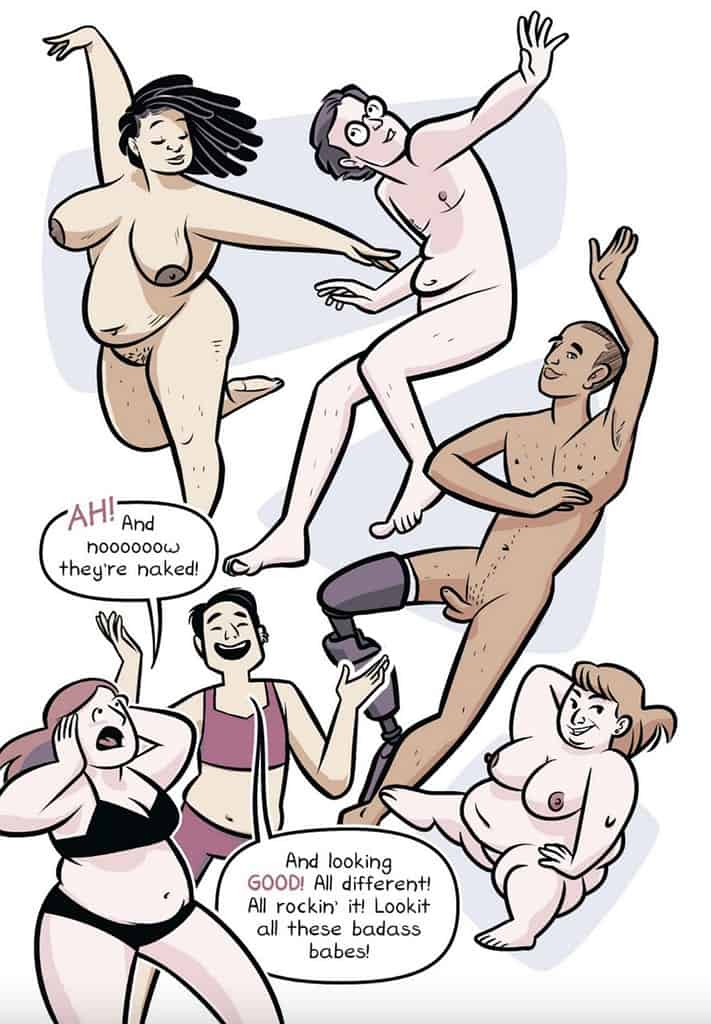
The chapter on masturbation offers detailed instructions for how readers might pleasure themselves. The authors provide instructions on how to stimulate one’s anus alongside cartoon illustrations of butt plugs and a man spreading his glutes.



“And don’t forget–everybody’s got a butt!” the book exclaims. “After the train has left the station (so to speak) and you’ve had a chance to wash up or douche back there, you can have an assload of fun with a healthy heaping of lube. Apply broad pressure to the outside of the entrance. Circle your butthole with your finger, pausing any time a spot feels extra good. Dip just the tip of your finger inside. Let your anus pull it in when it’s ready, instead of forcing it.”
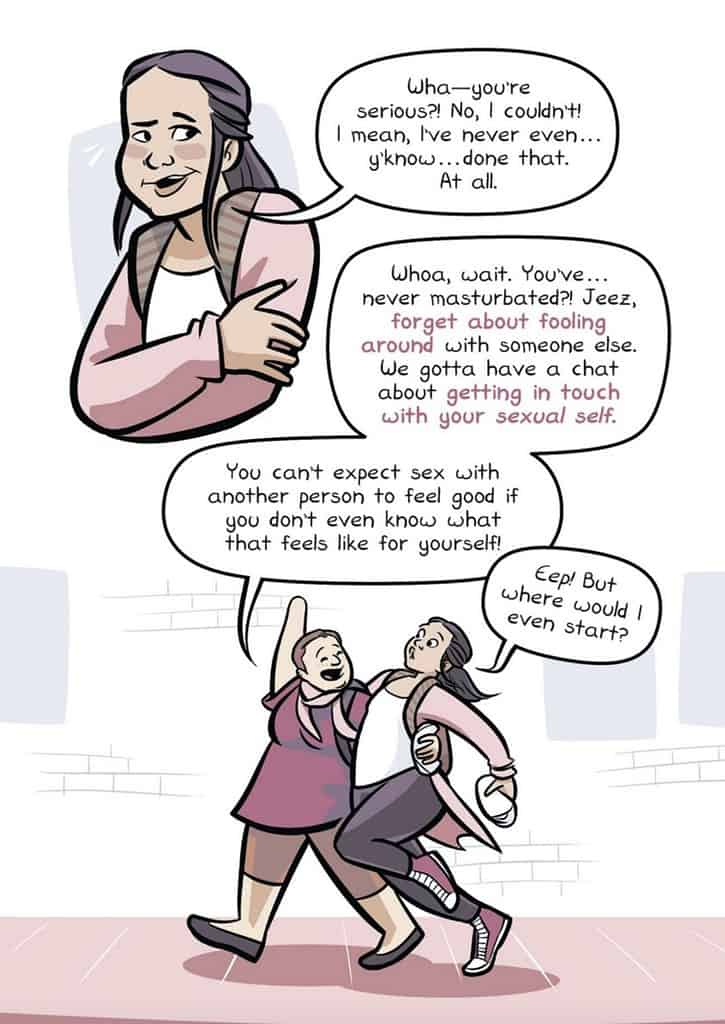
“Dive deeper with your finger or a butt plug! Just make sure any objects you put up there have a flared base; otherwise, your hungry heinie can gobble it up and the only way to get it back out is a trip to the hospital. Make sure to wash your hands before touching any of your other body parts, especially the vulva! Or wear gloves and toss ‘em when you’re done.”
The authors encourage young boys and young girls to masturbate. “Trail your fingers around and over your vulva. Flutter your fingers lightly from place to place. Tug, pull, and rub your labia. Circle your fingers around and over your clit. Give it a couple of quick pats!”
The book’s narrative on masturbation is just one of many that criticize sexual norms. One female character suggests to another that masturbation must precede sexual intercourse.
“Whoa, wait. You’ve never masturbated?!” the character asks. “Jeez, forget about fooling around with someone else. We gotta have a chat about getting in touch with your sexual self. You can’t expect sex with another person to feel good if you don’t even know what that feels like for yourself!”
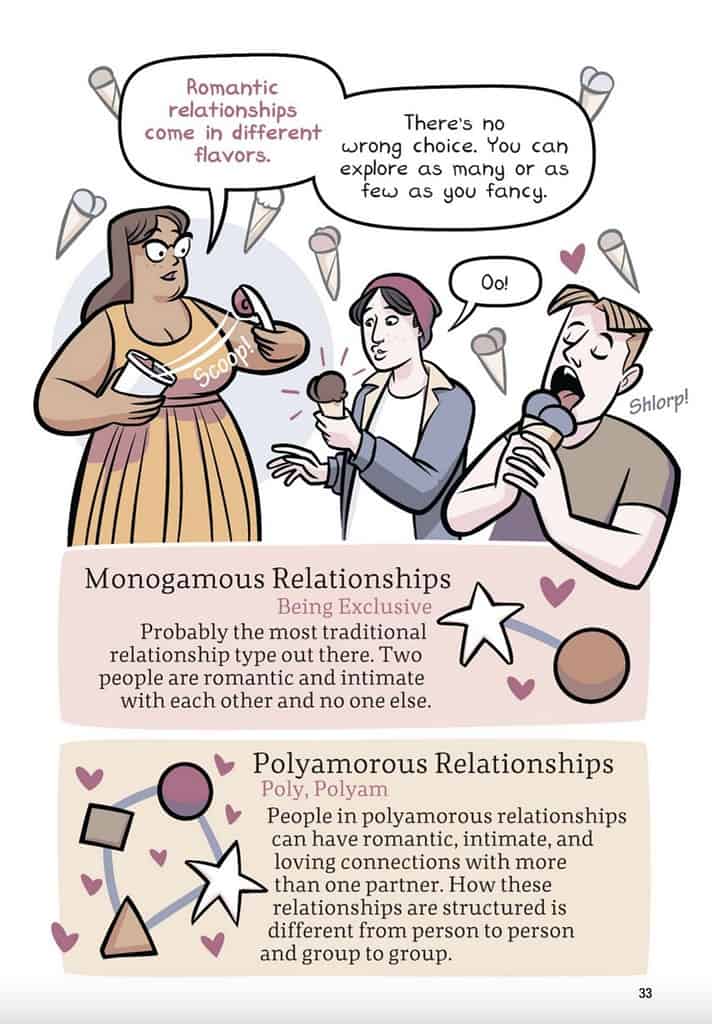
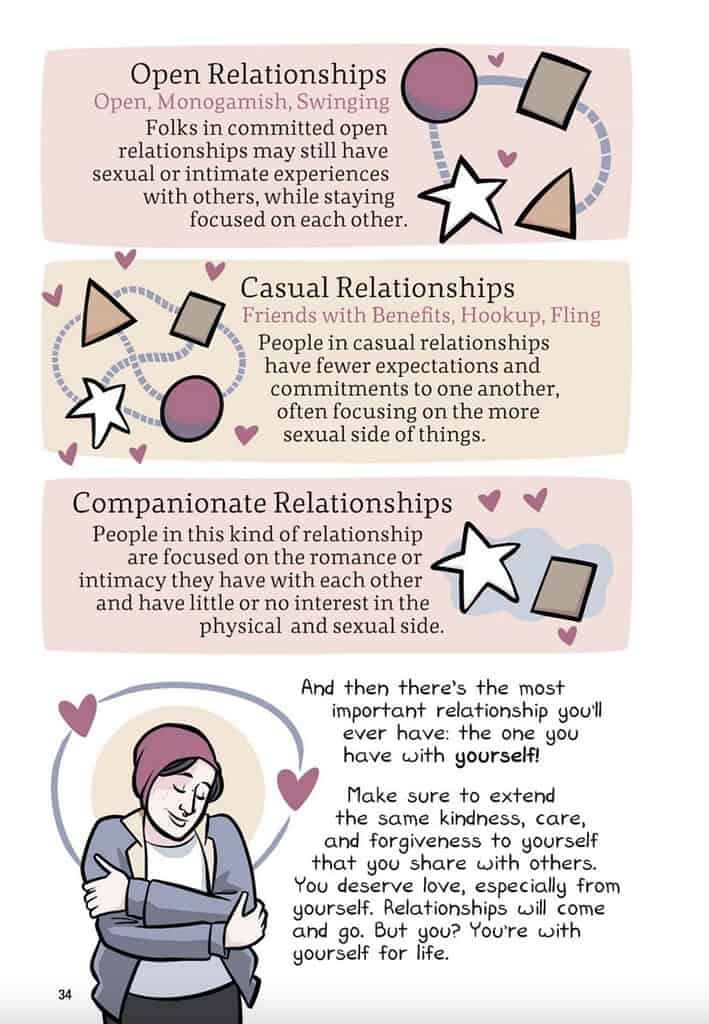
The authors promote polyamory while their characters eat ice cream. “Romantic relationships come in different flavors. There’s no wrong choice. You can explore as many or as few as you fancy,” the character says. Virginity, meanwhile, is described as a “silly label people came up with to describe a person who hasn’t done a specific sexual act, traditionally, a cisgender man or woman who hasn’t yet had penis-in-vagina intercourse.”
Both “Let’s Talk About It” and “Trans+,” another book available in Centennial High School, feature cartoon illustrations of nude and purportedly “transgender” individuals.
“Trans+: Love, Sex, Romance, and Being You” was written by left-wing ideologues Kathryn Gonzales and Dr. Karen Rayne.
The book offers tips on chest binding and “packing” or “the wearing of padding or a phallic object to give the appearance of having a bulge in the genital area.” It also outlines methods for “tucking the penis back and between the legs to produce a flat appearance in the genital region.
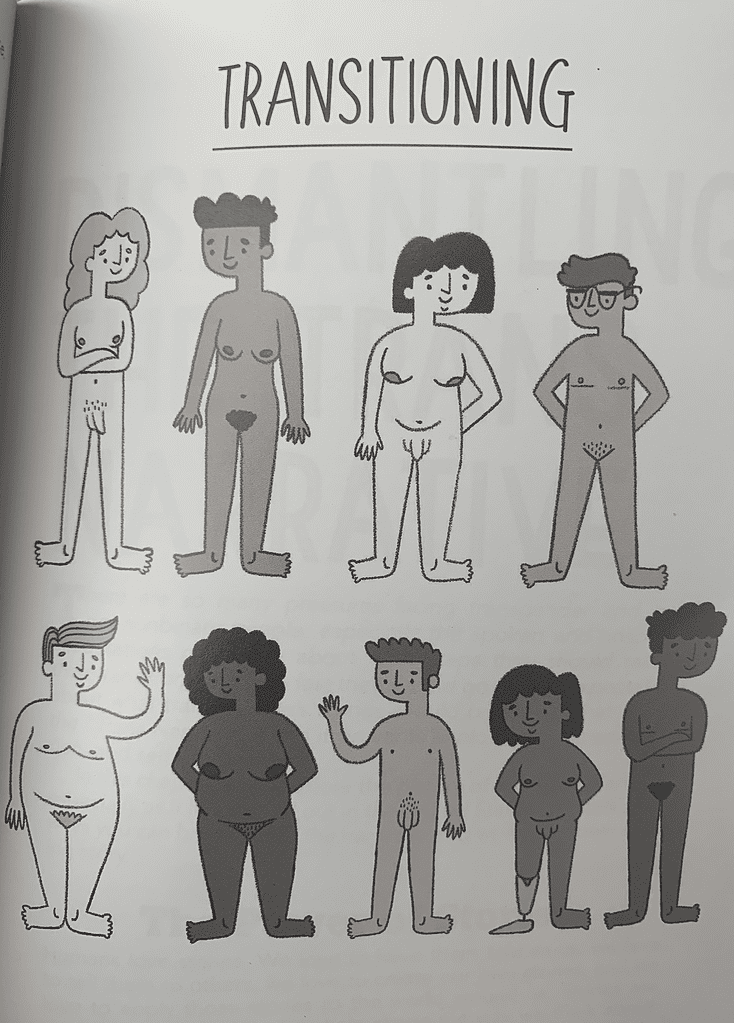
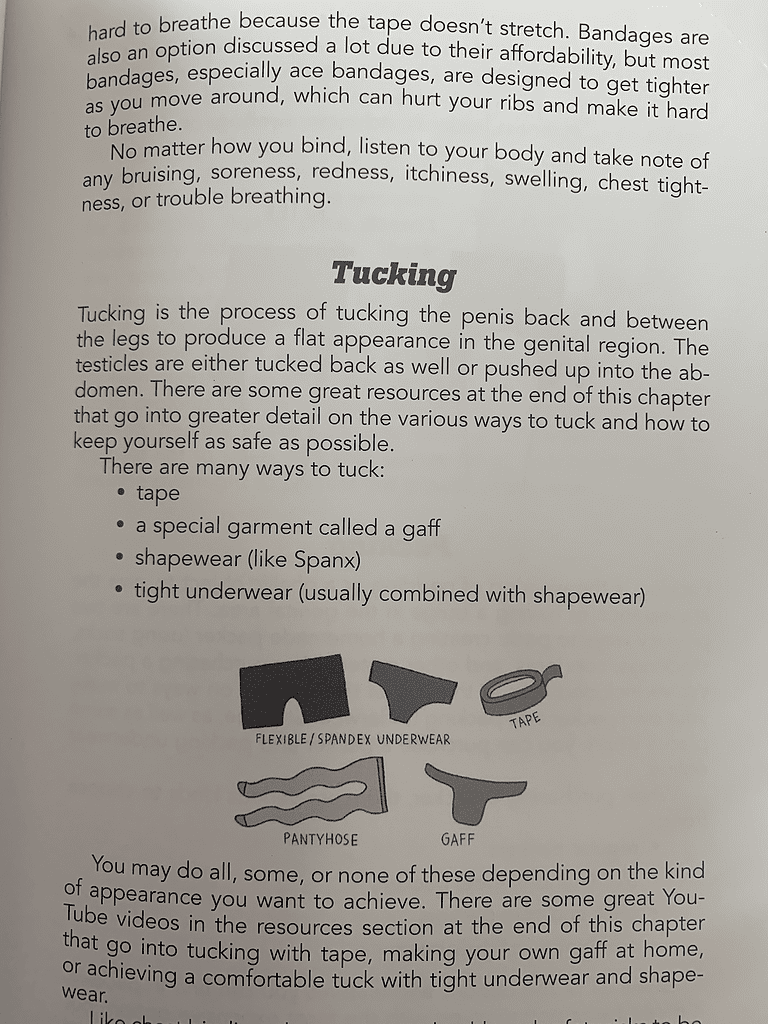
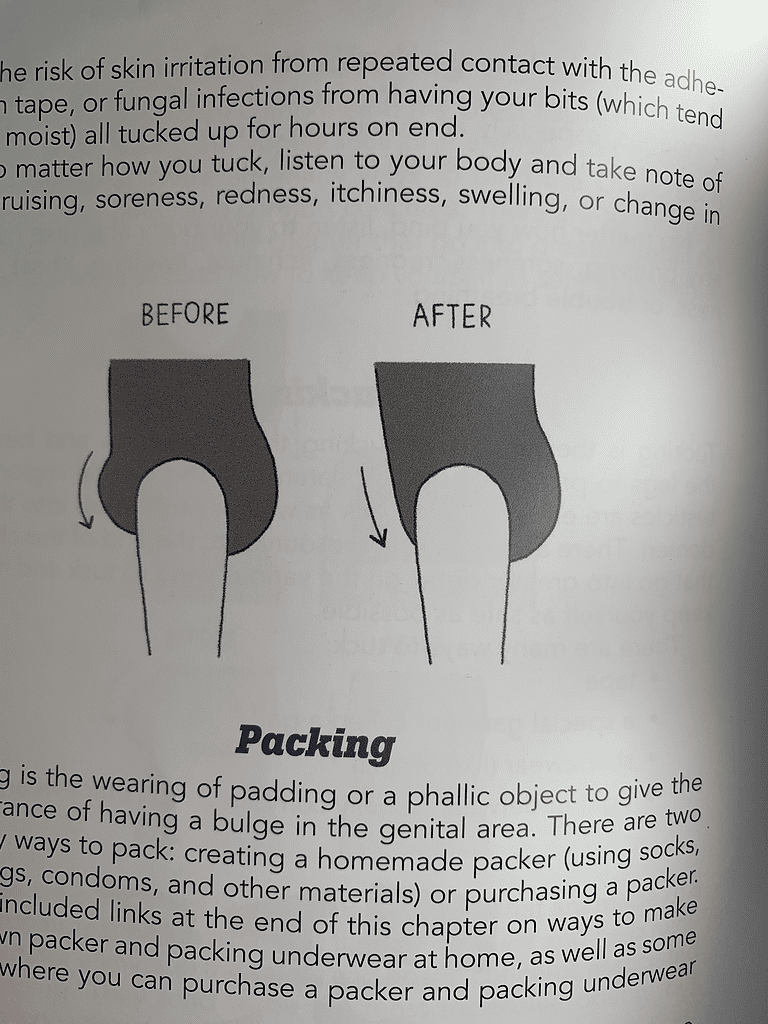
It includes a section on “medical transition,” which validates the use of hormone blockers and various types of “gender-affirming surgeries” — including facial feminization, phalloplasty, tracheal shaving, and metoidioplasty. It advocates for other procedures that permanently change a person’s body. For example, the book promotes hysterectomies, vaginectomies, and oophorectomies, all of which entail removing parts of the female reproductive system.
Meanwhile, the authors suggest that parents and doctors are wrong to resist minors’ interests in these types of changes. “Ultimately, your body is your own,” Gonzales and Rayne write. “If you’re a minor, your parents and doctors may try to exert more control over your body (specifically what they don’t want you to do). Thankfully, you will eventually turn 18 and be able to make your own decisions about your identity, your expression, and the medical steps you want to take to bring those into alignment.”
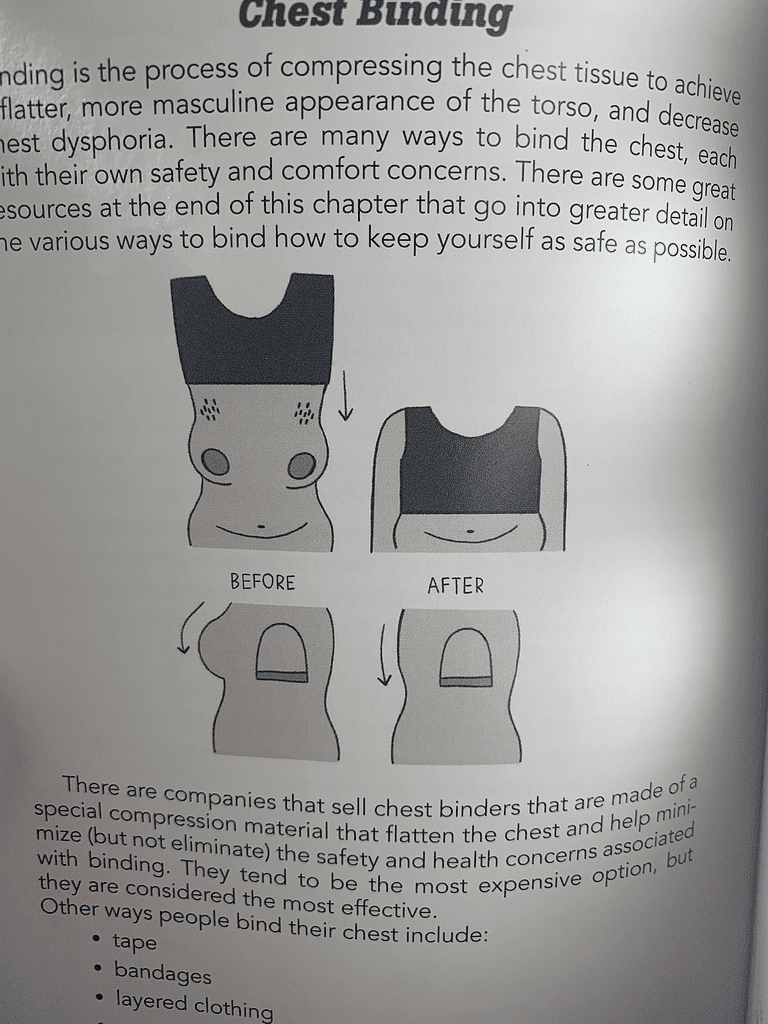
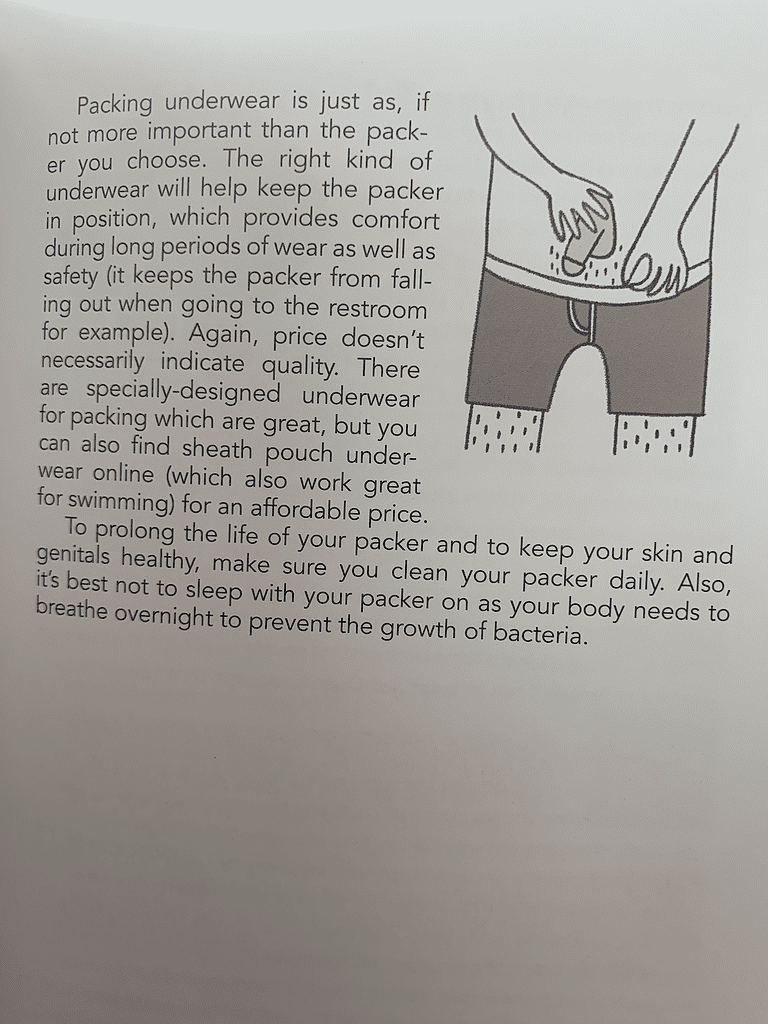
A chapter on “Family” suggests that readers want to pursue a “family of choice” different from their “family of origin.” “Most people think of the adults who raised them when they were babies, children, and teenagers as family,” it reads. “But if these people are not understanding or supportive of you, sometimes it is important to move away from them.”
According to the book’s website, Gonzales has worked for Out Youth and served on the steering committee for the Central Texas Transgender Health Coalition — both of which offer resources to assist purported transitions. In the book’s chapter on “Legal Transition[s],” Gonzales describes how one of the “best” parts of her job is accompanying kids and their families to obtain legal changes related to purported transitions. “[I]t’s always an honor to … be there at the moment that they become legally recognized as the person they have always known themselves to be,” she writes of working with clients.
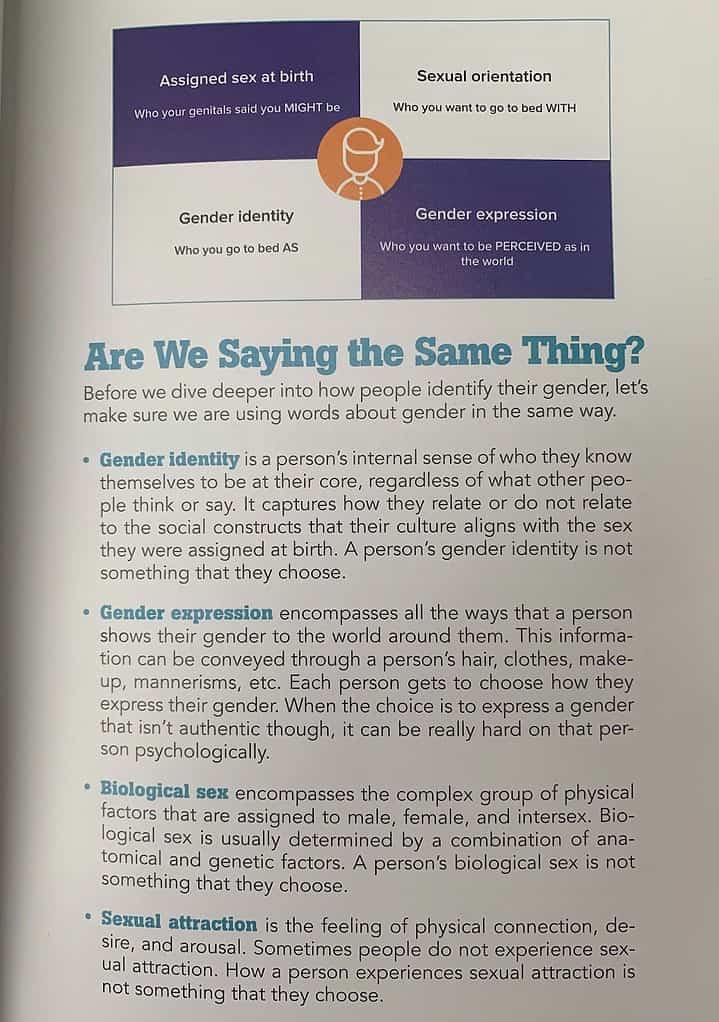
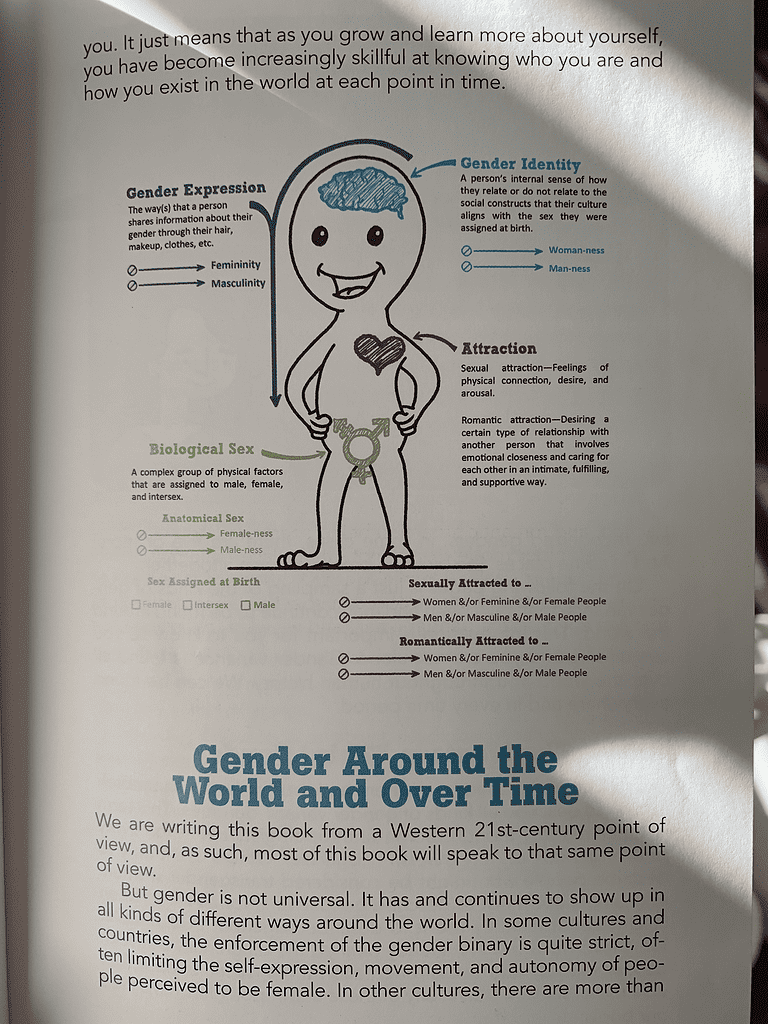
As with “Let’s Talk About It,” “Trans+” offers advice on sexual activity and orgasms. It asks, “So How DO Trans People Have Sex” before offering a road map-type graphic for guiding oneself through the use of sex toys, oral sex, anal sex, kissing, and mutual masturbation.
“Paying attention to what activities you find fun, sexy, arousing, and pleasurable is the road map to what kinds of sexual activities are for you,” it reads. The authors also inform readers of slang for oral sex “sometimes called giving head, carpet munching, blow job, going down”) and anal sex (“sometimes called butt sex, tossing salad, sodomy”).
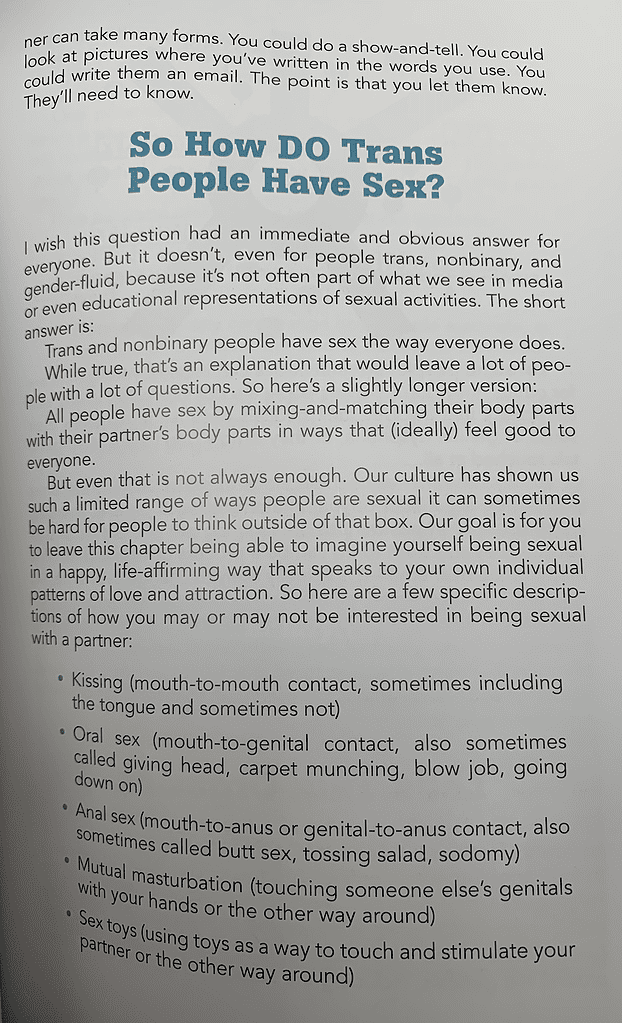
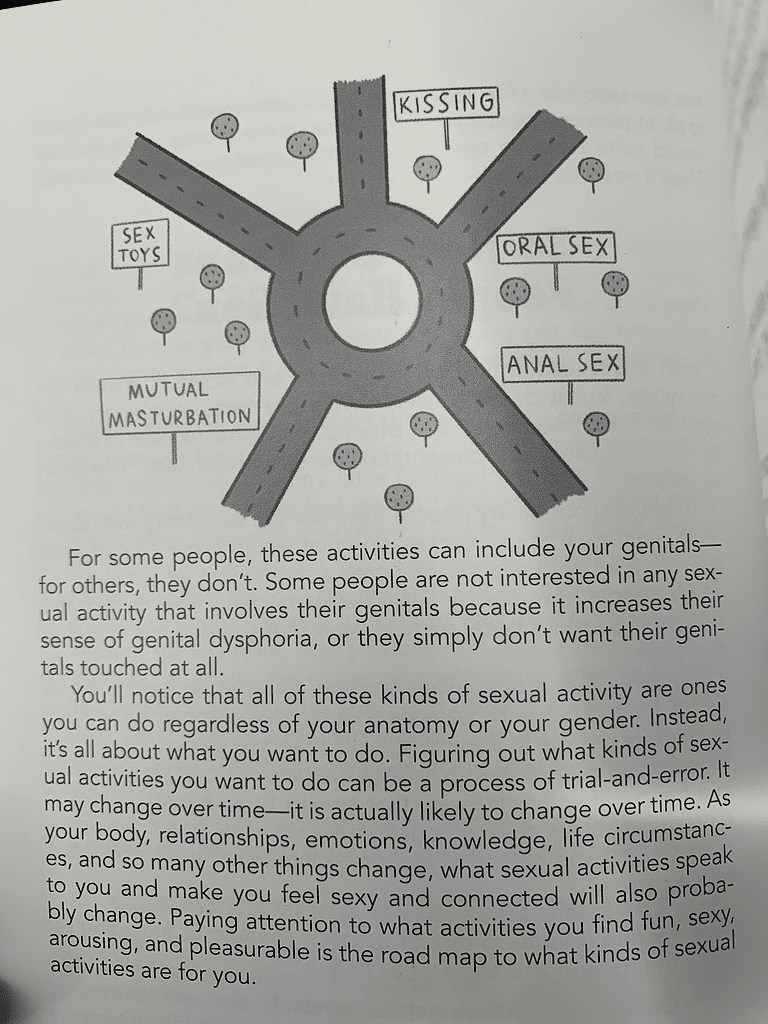
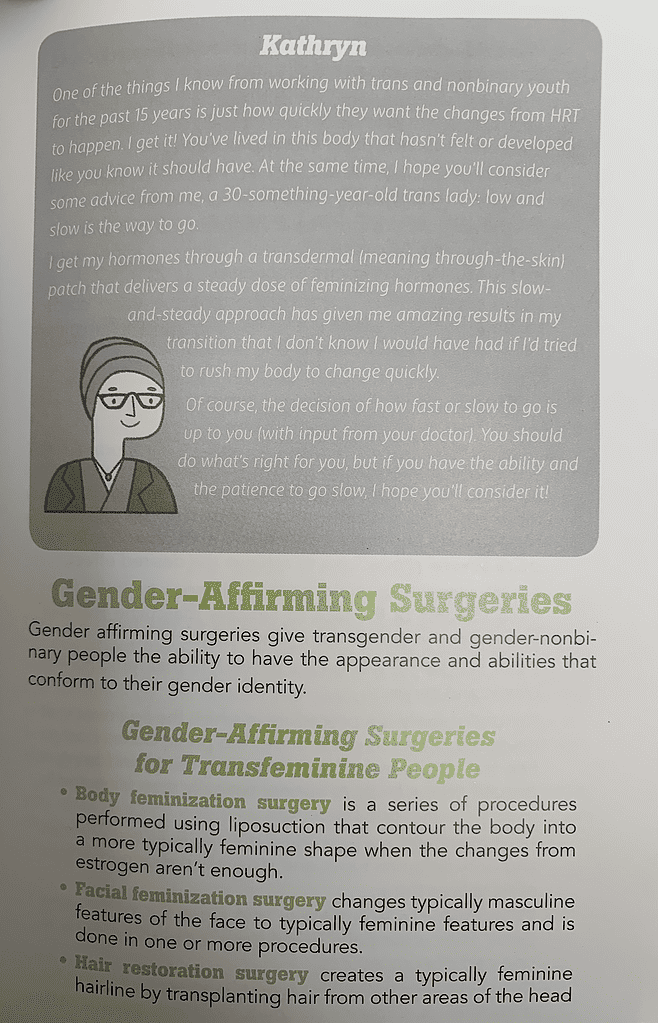
This book, like others found in Idaho schools, is framed entirely inside the radical gender ideology informing the trans view of the world. “Gender identity” is depicted as innate and immutable — some kids are just born that way and can know this as toddlers. They may be unhappy because our transphobic society tries to pigeonhole them into categories of normal gender binaries or normal sex. Society and schools must affirm the new identity.
A new world beyond the binary is possible. In fact, quite counter to history, “Trans+” begins with an apparent message for individuals experiencing gender confusion, seeking to reassure them that their gender-confused “ancestors” were treated as gods. “Transgender and gender non-binary people have often held a revered place in their societies … So go forward in this book, in your life, in your world, knowing that you are perfect, whole, and complete,” it reads. “Operate from a place where you know your own power, your own marvelousness. Know that your ancestors were no less than gods.”
It’s unclear how exactly these books made their way into Centennial High School, but West Ada policy provides a laundry list of criteria for books. One maintains that “learning resources shall be selected based on their ties to the curriculum, intended audience, and student age/grade level.”

These books and others have raised questions about Idaho law, which provides a loophole for obscenity within institutions that exist for an educational purpose, such as public schools. Recently proposed state-level legislation, the "Children’s School and Library Protection Act," would prohibit school employees from making harmful material available to minors. It would allow minors who obtained harmful materials in violation of the law, or their parents or legal guardians, to bring a civil lawsuit if school or library personnel distributed the materials or if the school or library “failed to take reasonable steps to restrict access to material harmful to minors.”
The bill text would seemingly preclude content like “Trans+” and “Let’s Talk About It” from reaching school library shelves. In defining content that’s harmful to minors, it includes depictions of masturbation, sexual excitement, sexual conduct more generally, and nudity, among other things.
Deputy Superintendent of West Ada School District Nick Smith contradicted records provided by his Chief of Staff by denying that these books were in circulation in West Ada school libraries. The public records, however, plainly lists the books among those in circulation at Centennial High School. The school district later said the books had been lost. A Feb. 21 email obtained via public records request shows Chief of Staff Niki Scheppers telling Smith that both books were marked as lost in the district’s computer system. Nonetheless, Scheppers told Smith they’re “technically ‘in circulation.’”
It’s unclear why Smith said they weren’t or when the books were initially regarded as lost. Scheppers later said via email that “Trans+” was acquired on April 20, 2022, checked out on Jan. 6, “but never returned.” According to the district, it was due on Feb. 7 and marked as lost on Feb. 9.
